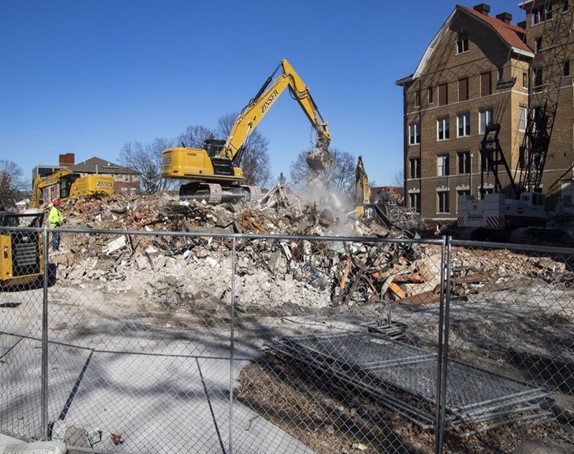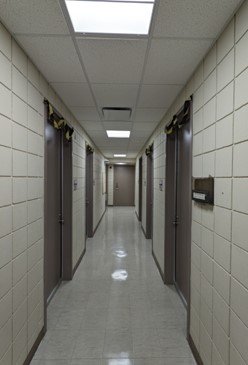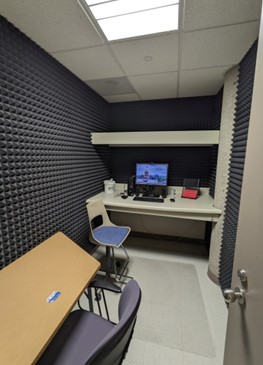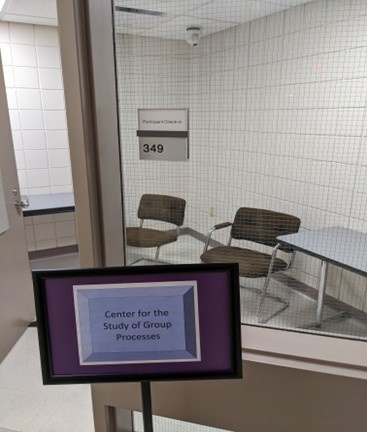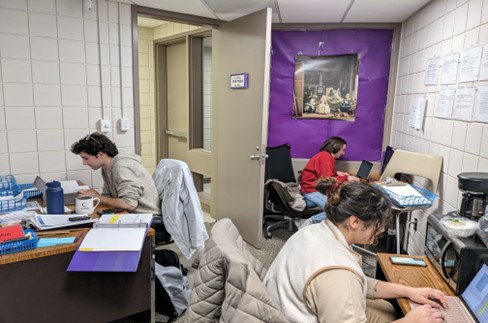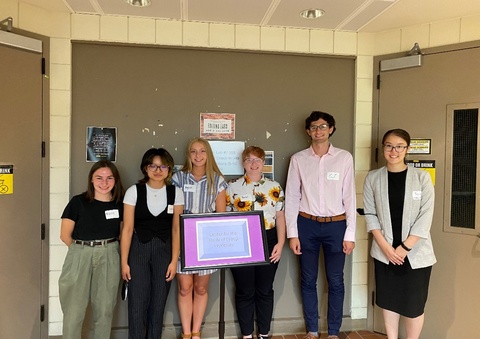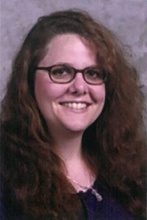
On December 1st, 2020, construction workers began demolishing Seashore Hall, and along with it, The Center for the Study of Group Processes. This destruction of the historic lab occurred while the global pandemic was raging, and group studies were already cancelled because they could be life-threatening. The Center’s research came to a screeching halt, and many feared this would be the end of one of our department’s most enduring institutions.
Prior to 2020, the Department of Sociology and The Center was housed in Seashore Hall, one of the oldest buildings at The University of Iowa. Built in 1899, Seashore Hall first served as a hospital in the early 1900s, but later became the space for several university departments and offices, including the departments of Psychology, Journalism, Computing and Audio-Visual Services, and of course, Sociology.
Seashore Hall became the hub for social psychologists studying group interaction. Ever since Professor Kurt Lewin started his career at The University of Iowa in the 1940s, the study of human groups has been a major part of the social science research and teaching at our university. Famous academics, such as Professors Albert Bandura and Leon Festinger, along with Professor Kurt Lewin, had offices in this building, as well as their research centers.
Professors and students from the Department of Sociology and Criminology have made important contributions to this research tradition. To accomplish this work, the Center for the Study of Group Processes was founded in the basement of Seashore Hall. It contained several offices, multiple small laboratory rooms, and a large observation room with a one-way window. Established on January 20, 1992, by Professors Edward Lawler and Barry Markovsky, the center was supported by the University of Iowa as a place for any of the university’s researchers to do research on groups.
Noted sociologists, such as Professors Cecilia Ridgeway, Charles Mueller, and Jae On Kim, advanced their careers in Seashore Hall, and used the center as an important resource. Graduate and undergraduate students collected data for their early research on their way to becoming notable scholars, such as Professors Robb Willer of Stanford University, Jeffrey Lucas of The University of Maryland, and Will Kalkhoff of Kent State University.
Despite Seashore Hall’s long and remarkable history, by the 2010s, it was showing its age, and plans to demolish it were in the works. The days of the original Center for the Study of Group Processes were numbered. And then the fateful day happened: Tuesday, December 1st, 2020, was its last day.
The Director for the center, Professor Alison Bianchi, and the Chair of the Department of Sociology at the time, Professor Jennifer Glanville, initiated the search for its new home. After a few starts and stops, with the help of Professor Joshua Weiner, the Associate Dean for Research, the search for experimental rooms and offices was completed. Thus, The Center for the Study of Group Processes lives on at the third floor of Becker Communication Studies Building.
The move from Seashore Hall was arduous, as it had to be accomplished during a global pandemic. And initially, due to the respiratory transmission of COVID-19, no experimental studies could be run in the small, windowless rooms of the new center. However, these obstacles were eventually overcome, and researchers began collecting data in earnest in the Fall of 2022.
As shown in the images, The Center for the Study of Group Processes now consists of four sound-proofed small rooms (a luxury not available at the original center), which are typically used for experiments involving social status; a large room, which will be used for studies of social exchange in networks; and an office for researchers to monitor the work.
Currently, two researchers are running social psychological experiments at the center. Professor Alison Bianchi is completing a study that explores the relation between sentiments and social status in three-person groups. This research is funded by a grant from the National Science Foundation. The other experiment is part of the PhD project of Yujia Lyu (see the Newsletter article featuring her), who is currently the Laboratory Manager at the center.
The Center for the Study of Group Processes now supports an Undergraduate Research Assistants (URA) program. Presently, the six undergraduates of the 2022-2023 cohort have a collective GPA of 3.82. During their first two months, students completed a rigorous training program that prepares them to be accomplished experimenters. This instruction includes Institutional Review Board (IRB) certification, acquiring skills for in-depth interviewing, coaching in customer service techniques, garnering experience in running computer protocols, and learning how to administer laboratory records. With this training under their belts and on their résumés, many of these students will be applying to graduate schools to continue their research careers.
This year, Yujia Lyu innovated another program for the undergraduates: the Friday Afternoon Salon. On these Friday afternoons, Yujia has led discussions about experimental research, mentored URAs about graduate school applications, and created a community of young experimentalists who are making a place for themselves in the group processes tradition.
The department website states the original mission of The Center for the Study of Group Processes: (1) promoting basic research in the field of group processes and enhancing the professional development of faculty and graduate students in the social sciences; (2) facilitating the development of proposals for external funding; and (3) strengthening the reputation of The University of Iowa as an innovative place for theory-based, scientific research on group processes. The center has not only survived the major setbacks of 2020, but now thrives as it continues this mission.
